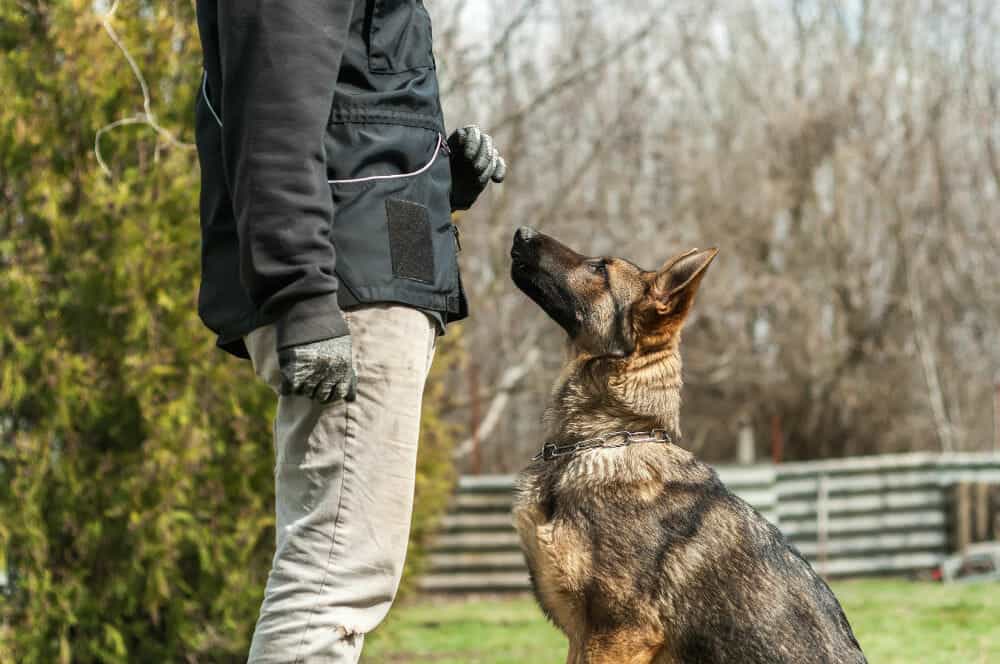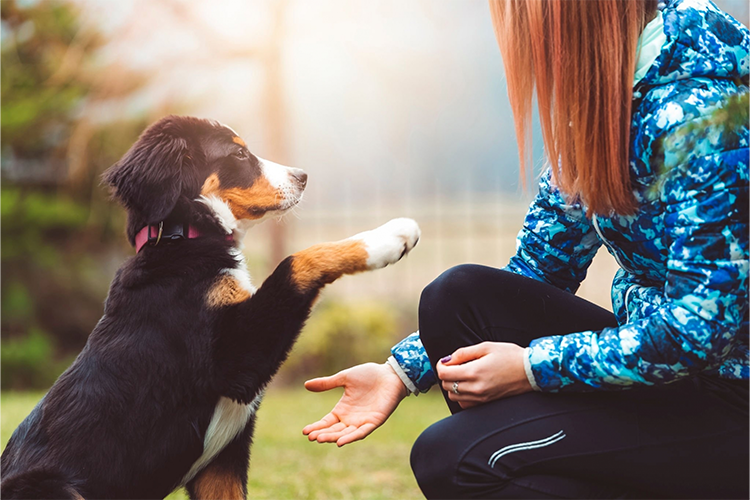Essential Strategies for Reliable Dog Training You Required to Know
Essential Strategies for Reliable Dog Training You Required to Know
Blog Article
Necessary Tips for Effective Dog Training: An Overview for Family Pet Owners
Effective canine training is a complex process that needs a critical method tailored to both the animal's character and the proprietor's objectives. Comprehending just how to navigate these challenges can considerably enhance the training experience, eventually transforming the partnership in between proprietor and dog.
Comprehending Canine Behavior
Recognizing canine habits is vital for efficient training and fostering an unified relationship in between pooches and their proprietors. dog training. Pet dogs connect mostly with body language, vocalizations, and actions, making it crucial for proprietors to interpret these signals accurately.

Socializing plays a substantial role in pet dog behavior; direct exposure to different settings, people, and other pets can dramatically impact a pet dog's character. Moreover, aspects such as type qualities and specific character ought to lead training methods, as some breeds might have certain behavior qualities that necessitate tailored strategies. By recognizing these aspects, proprietors can create a helpful setting that motivates favorable actions, bring about effective training results and a much deeper bond with their family pets.
Developing Constant Commands
Effective communication with your pet dog begins with establishing constant commands. This foundational aspect of training is essential for cultivating understanding between you and your pet dog. Consistency in the commands you make use of makes sure that your pet dog can dependably associate certain words or phrases with the preferred habits.
When choosing commands, pick clear, distinctive words that are very easy to claim and separate from one an additional. Prevent utilizing similar-sounding commands that may perplex your dog. Making use of "rest" and "stay" is appropriate, but "sit" and "hit" can lead to misunderstandings.
In addition, keep the exact same tone and volume for every command. Dogs are delicate to singing cues, so varying your tone can develop confusion.
It is similarly vital to ensure that all household participants get on the very same web page concerning the commands made use of. A united front in command use will certainly avoid blended signals and strengthen the learning process.
Favorable Support Strategies
The power of positive reinforcement in dog training depends on its ability to motivate desired behaviors through incentives and appreciation. This strategy is grounded in the principle that habits adhered to by favorable outcomes are more most likely to be duplicated. By integrating favorable support into your training regimen, you can successfully form your pet's behavior in a positive way.
To carry out favorable support, it's vital to identify what inspires your dog, whether it be deals with, playthings, or spoken appreciation. When your pet dog performs a desired activity, such as remaining on command, promptly compensate them with a reward or love. This association between the command and the positive end result enhances their understanding.
It's crucial to timing the rewards correctly; delivering the support within secs of the desired habits assists your pet make the link (dog training). Additionally, consistency is vital-- ensure that all relative use the same commands and reward systems to prevent confusion

Progressively, you can lower the frequency of deals with as your pet dog discovers the habits, transitioning to praise or intermittent rewards. This method not just promotes a strong bond in between you and your pet dog yet likewise promotes a favorable knowing atmosphere, making educating a satisfying experience for both.
Socialization and Interaction
Regularly subjecting your dog to a variety of environments, individuals, and other animals is important for their social advancement. Socialization must begin early, preferably during the essential window of 3 to 14 weeks, when puppies are most responsive to new experiences. Nevertheless, older canines can additionally benefit from ongoing socialization initiatives.
Present your canine to various settings, such as parks, pet-friendly shops, and metropolitan locations. This direct exposure assists them adapt to numerous stimuli, minimizing anxiousness and concern actions. Encourage favorable communications with various other canines and people, making certain that these experiences are secure and regulated to foster self-confidence.
Utilize structured playdates with courteous pets, as this can boost your pet's social skills and show them ideal habits. Obedience courses and training sessions also provide outstanding opportunities for socializing, enabling your canine to connect with others in a supervised atmosphere.
Screen your canine's body movement during communications, as this will certainly help you gauge their comfort degree. Gradually increase direct exposure to more tough situations while making certain that each experience is favorable. A well-socialized dog is more probable to show balanced actions, making them a pleasure to have in any setup.
Addressing Usual Training Difficulties
Every dog proprietor will certainly experience training challenges at some time, regardless of their pet dog's age or socializing level. Determining typical problems such as stubbornness, diversions, and terror can help in creating reliable strategies for improvement.

Disturbances during training sessions can thwart focus. To fight this, start training in this content a silent atmosphere with minimal stimulations. Slowly introduce disturbances as the pet becomes much more skillful in commands. Short, constant training sessions are also reliable in keeping focus.
Fearfulness can impede a canine's knowing process. Gradual desensitization to look at here now the resource of fear, combined with positive support, can aid minimize anxiousness. Persistence is vital; never require a pet into a situation that creates distress, as this may exacerbate the issue.
Ultimately, understanding and attending to these usual difficulties with a structured strategy will cultivate a much more efficient training experience, strengthening the bond between canine and owner while promoting efficient discovering.
Final Thought
In summary, successful pet dog training depends on a thorough understanding of canine actions, the establishment of consistent commands, and the application of positive support methods. Socializing plays a critical duty in creating well-adjusted family pets, while resolving common training challenges calls for perseverance and adaptability. By implementing these essential strategies, pet dog owners can foster a strong bond with their dogs and promote preferable behaviors, inevitably leading to a harmonious partnership between people and their canine buddies.
Comprehending pet dog behavior is important for effective training and cultivating a harmonious partnership in between canines and their proprietors.Socializing plays a considerable role in canine actions; exposure to different environments, people, and various other animals can dramatically affect a dog's personality.The power of positive reinforcement in dog training lies in its capability to encourage index wanted actions with incentives and praise. By integrating positive support right into your training routine, you can effectively form your pet's behavior in a positive manner.
In summary, effective canine training depends on a comprehensive understanding of canine habits, the facility of regular commands, and the application of favorable support methods.
Report this page